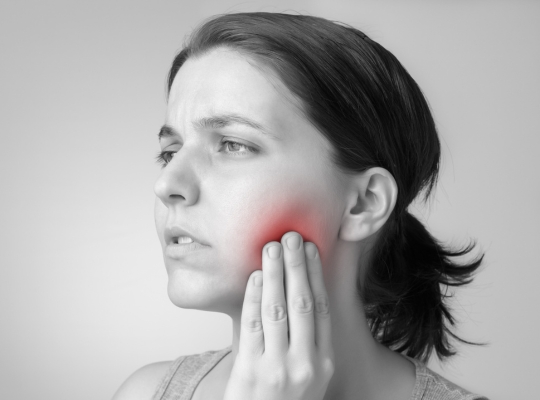Call us: 020 3322 3218
East Finchley
Monday - Friday
9:00 am to 6:00 pm
Saturday
Closed
Sunday
Closed
Balham
Monday - Friday
9:00 am to 6:00 pm
Saturday
Closed
Sunday
Closed
East Finchley
Monday - Friday
9:00 am to 6:00 pm
Saturday
Closed
Sunday
Closed
Balham
Monday - Friday
9:00 am to 6:00 pm
Saturday
Closed
Sunday
Closed

Nov 06, 2025
Toothache can appear suddenly or develop gradually, affecting your sleep, eating, and overall comfort. While it might start as mild discomfort, it often signals a more serious dental problem that requires professional care. In this guide, our Dental Art Implant Clinics specialists in East Finchley and Balham explain the common causes of tooth pain, what you can do at home, and how to prevent future issues.
Tooth pain can be triggered by many factors – from surface enamel damage to deeper inflammation.
The most frequent causes include:
Although only a dentist can make a final diagnosis, it helps if you can describe the pain at home before your visit.
This information helps your dentist quickly identify the cause and recommend suitable treatment.
If you can’t see a dentist right away, temporary relief can come from rinsing your mouth with warm salt water to reduce bacteria and calm the tissues. Gently brushing with a soft toothbrush helps remove debris around the sore tooth. Applying a cold compress to the cheek can reduce swelling. Over-the-counter painkillers such as ibuprofen or paracetamol can be used responsibly, following the instructions. Eat soft foods and avoid very hot, cold, sweet, or acidic items. Remember – these methods don’t treat the cause; they only ease the discomfort until you get professional care.
Seek urgent care if the pain lasts for several days or worsens, if you notice swelling of the cheek or gums, fever, difficulty opening your mouth or chewing, loose teeth, bleeding, or pus and unpleasant taste in the mouth. Pain that spreads to the ear, jaw, or causes headaches also requires immediate attention. These symptoms may indicate an infection or another serious condition that needs prompt treatment.
Treatment depends on the diagnosis. Dental fillings restore tooth structure and prevent bacteria from spreading deeper. If the nerve is affected, root canal therapy can save the tooth. In cases where the tooth cannot be restored, extraction may be required. Gum treatment involves professional cleaning and inflammation control. Antibiotics may be prescribed for infection or abscesses. Wisdom teeth causing pressure or repeated infections are often treated with removal. However, the goal is always to preserve your natural tooth whenever possible.
Good daily habits are the best protection against tooth pain.
Toothache almost always indicates an underlying problem that can and should be treated. Home remedies provide temporary relief but cannot replace professional dental care. Early diagnosis and treatment help prevent complications, while daily oral care, regular check-ups, and a balanced diet are the most effective ways to protect your smile from pain.
Toothaches are never pleasant, especially if they get in the way of enjoying your favourite meal or snack.
A good, well-balanced and healthy diet can take you a long way – we all know that.
Like other clinics and businesses, we too feel the strain caused by the current COVID-19 situation and, therefore, are unable to...
91 High Road, East Finchley,
London, N2 8AG
143-145, Balham Hill, London, SW12 9DL
© 2013 - 2025 Dental Art Implant Clinic Ltd. Registered Number: 08459947
Last updated: December 2025 / Guarantee, Website Privacy Policy, CCTV Policy